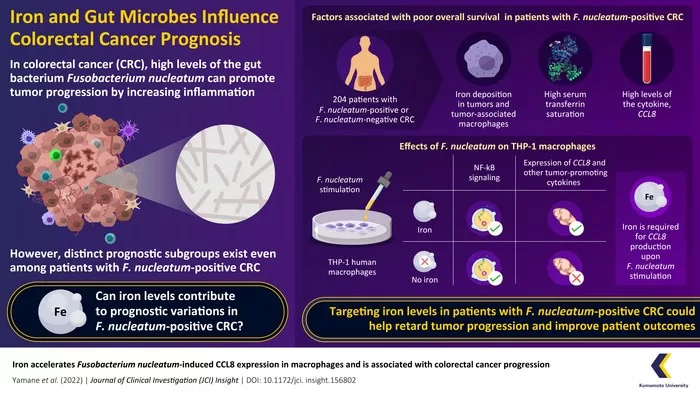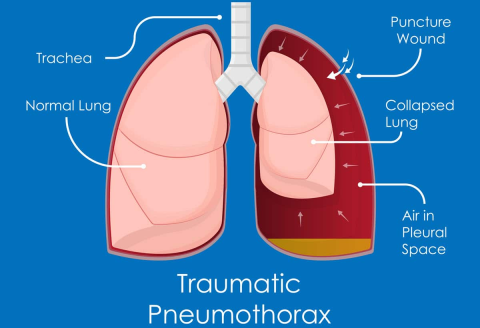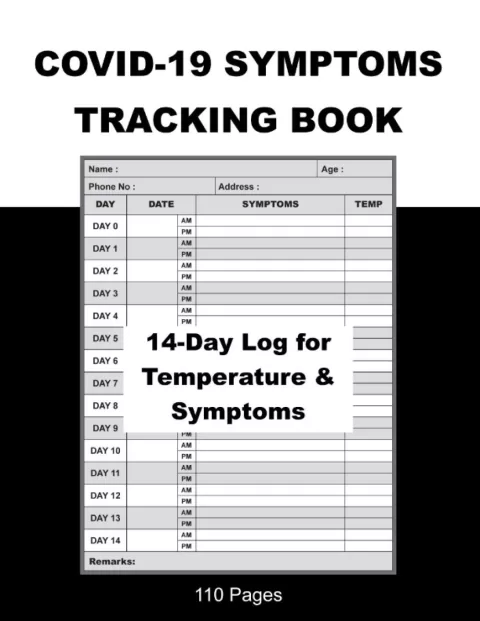Iron consumption, particularly from non-heme sources, has garnered attention for its potential role in colorectal cancer risk reduction. A recent study conducted in South Korea indicates that moderate intake of total and non-heme iron may significantly decrease the chances of developing colorectal and colon cancer. This study emphasizes the importance of plant-based iron sources, underscoring their contribution to colon cancer prevention. As colorectal cancer rates rise, understanding how iron intake influences this outcome becomes critical for developing effective dietary strategies. By exploring the relationship between iron intake and colorectal cancer, researchers aim to uncover important insights that could lead to improved health outcomes for populations at risk.
Exploring the link between dietary iron and the risk of colorectal malignancies is paramount in the field of nutrition and cancer prevention. Research has shown varying effects of heme versus non-heme iron consumption on cancer incidence, particularly as it relates to colorectal and colon cancer. The role of plant-based iron sources in mitigating risks associated with these types of cancer is essential, especially in regions with rising rates of colorectal diseases. As we delve deeper into the dietary habits that may influence colorectal cancer susceptibility, it is crucial to consider how the form of iron consumed impacts overall health. A comprehensive understanding of iron intake, its sources, and its relation to colorectal cancer can guide individuals towards healthier dietary choices.
Iron Consumption and Its Impact on Colorectal Cancer Risk
The relationship between iron consumption and colorectal cancer (CRC) risk is a crucial area of research, particularly given the rising incidence of CRC globally. A recent study conducted in South Korea found that moderate iron intake, specifically non-heme iron, significantly correlates with a reduced risk of developing colorectal and colon cancers. Non-heme iron, which is predominantly found in plant-based foods, offers a health-conscious alternative to heme iron prevalent in red and processed meats. This distinction is essential as dietary patterns in countries like South Korea differ markedly from Western nations, where much of the prior research has been conducted.
Furthermore, the study highlights the importance of understanding the effects of various types of iron on cancer risk. While heme iron has been linked to higher cancer risk due to its ability to catalyze oxidative processes in the body, non-heme iron appears to offer protective benefits, particularly when consumed in moderation. As people shift towards healthier diets with increased plant-based foods, the potential for reducing colorectal cancer risk through iron intake becomes a vital topic for future dietary guidelines and health recommendations.
The Role of Plant-Based Iron in Colon Cancer Prevention
Research indicates that diets rich in plant-based foods are associated with a decreased risk of colon cancer. These foods provide non-heme iron, which not only supplies essential minerals but also contains antioxidants and dietary fiber, assisting in the prevention of cancer. The recent findings that link non-heme iron consumption to a lower incidence of colon and colorectal cancers underscore the need to promote plant-based diets as a key strategy in public health initiatives aimed at reducing cancer risks.
Moreover, plant-based iron sources come with a multitude of health benefits that extend beyond iron intake. They contribute to overall dietary quality and provide protective micronutrients that can combat inflammation and oxidative stress, both of which are implicated in cancer development. As research continues to evolve, establishing a clear understanding of the mechanisms through which plant-based iron influences cancer risk will be fundamental in shaping nutritional policies, encouraging dietary modifications, and ultimately fostering a culture of health-focused eating.
Understanding the Benefits of Non-Heme Iron
Non-heme iron, distinct from heme iron found in animal products, plays an essential role in maintaining optimal health. It is not only more affordable and widely available in staple foods such as legumes, greens, and whole grains, but its absorption can be enhanced by consuming vitamin C-rich foods alongside it. This synergistic effect allows individuals to achieve sufficient iron intake while benefitting from a balanced diet rich in nutrients that promote overall health.
In the context of colorectal cancer prevention, non-heme iron’s role becomes even more significant. Studies show that populations consuming higher amounts of non-heme iron tend to have lower rates of colorectal cancer. Consequently, integrating more plant-based iron sources into dietary recommendations could serve as an effective measure for cancer prevention strategies, especially for individuals at risk of dietary deficiencies or those with higher cancer susceptibility.
Colorectal Cancer: A Rising Health Concern in South Korea
Colorectal cancer has become a pressing health issue in South Korea, with its increasing prevalence underscoring the importance of uncovering modifiable risk factors. As the third most common cancer, it poses a significant burden on the healthcare system, necessitating urgent interventions and awareness campaigns focused on dietary habits. Factors contributing to the rise in colorectal cancer rates include lifestyle choices such as physical inactivity and poor dietary patterns, making it critical to explore preventive measures.
The South Korean population’s unique dietary profile offers a significant insight into the potential impact of iron consumption on colorectal cancer risk. The pivotal study on the association between iron intake and cancer incidence highlights that the consumption of non-heme iron may provide protective benefits, further reinforcing the connection between nutrition and health outcomes. Targeting dietary changes can lead to sustainable improvements in reducing cancer incidence and enhancing public health.
The Connection Between Iron Intake and Cancer Development
As the understanding of cancer development evolves, the role of nutrition, particularly iron intake, has garnered significant attention. The evidence suggesting that excessive heme iron intake may contribute to heightened colorectal cancer risk sets the stage for questioning traditional dietary habits centered around red meat consumption. Studies indicate that certain types of iron can influence carcinogenic processes in the body, making it essential to differentiate between heme and non-heme iron in dietary evaluations.
Moderate intake of non-heme iron, on the other hand, appears to mitigate some of these risks, potentially making it a safer alternative for those concerned about cancer development. The results from recent research provide a compelling argument for individuals to reassess their dietary patterns and consider incorporating more non-heme iron sources as a preventative measure against colorectal cancer. This shift could emphasize the importance of diverse and nutrient-rich diets in fostering long-term health.
Dietary Patterns and Its Influence on Iron Consumption
Analyzing dietary patterns reveals significant insights into iron consumption and its implications for health, particularly regarding colorectal cancer. In South Korea, where traditional dietary habits may consist of a higher proportion of plant-based foods, there is a unique opportunity to understand how these patterns relate to iron intake and cancer risk. Focusing on enhancing non-heme iron sources could readjust dietary norms, promoting healthier eating practices that prioritize cancer prevention.
Moreover, education on dietary choices and iron sources can help combat misinformation and dietary deficiencies. Emphasizing non-heme iron from fruits, vegetables, and grains may aid in addressing the rising rates of iron deficiency anemia while simultaneously reducing cancer risk. Therefore, comprehensive educational campaigns can be integral in shaping public health strategies that emphasize the importance of balanced iron consumption for optimal health outcomes.
Future Research Directions on Iron and Cancer
The intricate relationship between iron consumption and colorectal cancer presents a multitude of avenues for future research, particularly focusing on understanding the mechanisms underpinning these associations. Investigating the biological pathways through which non-heme iron exerts protective effects against cancer will be critical in developing targeted dietary recommendations. Additionally, exploring how genetic and environmental factors interact with iron metabolism could shed light on individualized approaches to cancer prevention.
Long-term cohort studies could also provide valuable data on the impacts of diet over time, helping to delineate the influence of various dietary patterns on cancer incidence. By garnering insights from diverse populations, researchers can identify specific dietary strategies to mitigate colorectal cancer risk, ultimately enhancing public health initiatives. As research evolves, integrating findings into actionable health guidelines will be instrumental in the ongoing fight against colorectal cancer.
The Importance of Moderation in Iron Intake
While iron is an essential nutrient, the principle of moderation plays a pivotal role in achieving health benefits without increasing cancer risk. Recent findings showcase that moderate total and non-heme iron consumption can significantly lower the risk of colorectal cancer, indicating that balance is key. Excessive iron intake, particularly from heme sources, can lead to adverse health outcomes, making it crucial for individuals to calibrate their intake according to dietary guidelines.
Public health messages emphasizing balanced diets enriched with non-heme iron can pave the way for healthier communities. The focus should be on educating individuals about portion control and the benefits of diversifying iron sources while limiting high-risk foods. Through moderation, individuals can reap the health benefits associated with adequate iron intake while significantly reducing their colorectal cancer risk.
Iron Intake and Lifestyle: A Holistic Approach to Cancer Prevention
The correlation between iron intake and lifestyle choices presents a holistic approach to cancer prevention. Physical activity, weight management, and dietary choices all intertwine to influence overall health outcomes. The recent study highlighting non-heme iron’s protective effects complements other lifestyle interventions that can help reduce colorectal cancer risks, such as maintaining a healthy weight and remaining physically active.
By integrating dietary modifications with lifestyle changes, communities can foster a culture of health that empowers individuals to take charge of their well-being. Understanding how non-heme iron can fit into a balanced diet alongside other preventive strategies can provide a comprehensive framework for mitigating colorectal cancer risk. This integrative perspective encourages ongoing collaboration between nutritional science, public health, and individual choices to promote optimal health.
Frequently Asked Questions
Does moderate iron consumption reduce colorectal cancer risk?
Yes, recent studies indicate that moderate total and non-heme iron consumption may reduce the risk of colorectal cancer, particularly in specific populations such as Koreans. These findings highlight the potential benefits of plant-based iron sources.
What role does non-heme iron play in cancer prevention?
Non-heme iron, commonly found in plant-based foods, has been associated with lower risks of colorectal cancer. Moderate intake of non-heme iron can contribute to overall iron consumption, which research suggests is protective against colon cancer development.
How does plant-based iron impact colorectal cancer risk?
Plant-based iron, primarily as non-heme iron, seems to lower colorectal cancer risk by possibly displacing harmful carcinogens and providing essential nutrients that enhance cancer prevention mechanisms.
Is there a difference between heme and non-heme iron regarding colorectal cancer risk?
Yes, studies have shown that while non-heme iron is linked with reduced colorectal cancer risk, heme iron does not exhibit a linear pattern of risk reduction. High non-heme iron intake, unlike heme iron, is associated with lower incidences of colon cancer.
What dietary adjustments can help in colorectal cancer prevention?
Incorporating moderate amounts of non-heme iron from plant sources, such as legumes, leafy greens, and fortified grains, along with a balanced diet rich in fiber and low in processed meats, can help reduce the risk of colorectal and colon cancer.
How much iron should be consumed to minimize colorectal cancer risk?
While specific recommendations may vary, a balanced approach involving moderate total and non-heme iron consumption is favored. It’s best to aim for iron intake within the recommended dietary allowances (RDAs) while focusing on plant-based sources.
Are there any risks associated with high iron intake and colorectal cancer?
Excessive iron intake, particularly from heme sources, may increase cancer risk; however, moderate consumption of non-heme iron appears beneficial. It is important to balance iron intake with overall dietary quality to mitigate risks.
Can lifestyle factors influence the relationship between iron intake and colorectal cancer?
Yes, lifestyle factors such as obesity, physical inactivity, and smoking can influence colorectal cancer risk. Combining moderate iron intake with a healthy lifestyle may further reduce the risk of colorectal and colon cancers.
| Key Points |
|---|
| Colorectal cancer is the third most common cancer in South Korea, with rising incidence rates. |
| The study examined the association between iron consumption and colorectal, colon, and rectal cancer among Korean adults. |
| Moderate total and non-heme iron intake may reduce the risk of colorectal and colon cancer. |
| No significant association was found between heme iron and colorectal cancer risk. |
| Plant-based non-heme iron appears to provide protective effects against colorectal cancer. |
| Further research is necessary to understand the mechanisms of how diet affects cancer risk. |
Summary
Iron consumption in relation to colorectal cancer is a critical area of study, and recent findings indicate that moderate intake of both total and non-heme iron may help mitigate the risk of developing colorectal and colon cancer in South Korea. This underscores the importance of dietary choices, particularly emphasizing plant-based iron sources, as potential protective factors against such cancers. As colorectal cancer rates continue to rise, understanding how iron intake influences cancer risk represents a valuable pursuit for future research and public health strategies.
The content provided on this blog (e.g., symptom descriptions, health tips, or general advice) is for informational purposes only and is not a substitute for professional medical advice, diagnosis, or treatment. Always seek the guidance of your physician or other qualified healthcare provider with any questions you may have regarding a medical condition. Never disregard professional medical advice or delay seeking it because of something you have read on this website. If you believe you may have a medical emergency, call your doctor or emergency services immediately. Reliance on any information provided by this blog is solely at your own risk.








